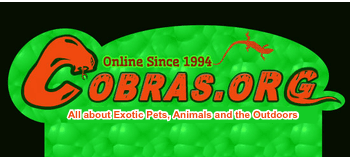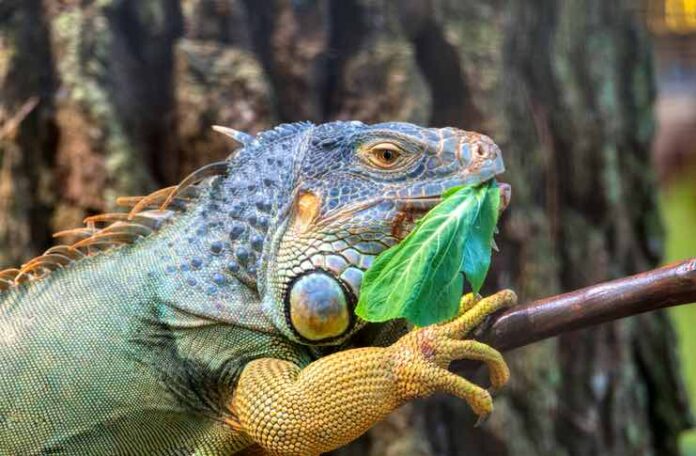When you’re a reptile owner, your number one priority should be the well-being of your pet. Reptile food tips can play a major role in keeping your reptile healthy. Here is a rundown of what your pet reptile can eat, both fresh and cooked, to keep him healthy.
What is the best diet for pet reptiles?
In terms of what they eat, reptiles can be grouped into four types:
There are specific dietary requirements for reptiles. For the most part, reptiles can eat a combination of fresh food and species-specific prepared foods (such as extruded pellets), except the small number of carnivores that do better with whole prey.
Prepared foods, entire prey, and fresh vegetables are just a few examples of the many food options available to your pet.
Looking for vegan reptiles? Watch this video:
Prepared Foods
Prepared foods, entire prey, and fresh vegetables are just a few examples of the many food options available to your pet. Incorporating these reptile food tips can ensure your pet gets the right balance. All reptiles, whether carnivores or omnivores, can benefit from the added vitamin and mineral content of prepared diets. It might be challenging to keep track of all the vitamins and supplements your pet needs daily if you only give him fresh or live food. Meals are typically offered in pellets, powdered form, or freeze-dried mixtures. Here are four types of ready-to-eat meals that your pet might enjoy.
#01. Pellets
Because they usually come in ready-to-eat formulae that are mixed to give your pet the exact combination of protein, minerals, and vitamins that they require, extruded pellets are a fantastic option. Never feed green iguana pellets made for a turtle; instead, acquire the kind made for your specific species. (Also, check that the bottle says the pellets are for a main meal, not a snack or supplement, for your pet.)
These three examples can serve as the main course or be combined with fresh foods:
- The best food for land turtles and tortoises is extruded food pellets made of plants, berries, flowers, and even insects.
- For aquatic turtles who eat mostly crustaceans and fish, we have Aquatic Turtle Extruded Food Pellets.
- For your bearded dragon’s omnivorous diet—which includes plants, flowers, and insects—we have Bearded Dragon Extruded Food Pellets. It has all the nutrients, vitamins, and proteins your body needs to flourish and look its best.
#02. Powdered mixture
The crested gecko and other fruit-eating geckos often ingest powdered mixtures as a kind of prepared diet. You can easily give your pet all the nutrition and vitamins he needs using powdered mixtures. Having said that, live insects are a good complement for any gecko, including fruit-eating ones.
The Gecko Gold Powdered Diet provides all the necessary nutrients for fruit-eating geckos, including protein, vitamins, and minerals.
#03. Non-hydrolyzed Protein
You can provide all the nourishment your insectivores or omnivores need in a delicious, easy-to-serve form with dehydrated meat products. While some can serve as a complete meal for your pet, others are more suited for occasional treats, so be sure to read the labels carefully. I have three choices:
For omnivores like tegus, bearded dragons, water dragons, and box turtles, try Reptile Munchies Omnivore. Either this or fresh food and pellets can make up your pet’s daily diet.
The nutrient-dense Reptile Munchies River Shrimp can stand on its own as a pet food, or it can be supplemented with pellets and greens. Excellent for axolotls, salamanders, and turtles.
Mealworms for Reptiles: Mealworms are more of a pleasure than a main source of nutrition. An excellent choice for chameleons, leopard geckos, and bearded dragons.
If you’re looking for a stable supplier, TopFlight Dubia has all that you need for your reptile’s appetite.
#04. Veggies and Fruits That Have Been Dehydrated
Dehydrated fruit and vegetable combinations provide all the nutrients your pet needs in a convenient, pleasant form, making them a great choice for both carnivores and herbivores. As a treat for your pet, offering them live or entire, fresh prey can bring variety to their diet and provide mental stimulation that can enrich their day-to-day life. This is true whether your pet is an omnivore, carnivore, or insectivore.
Brown crickets, grasshoppers, and mealworms are some of the insects that insectivores love. Even though omnivores don’t particularly seek them out as they age, these bugs are nonetheless tasty.
Your Pet’s Health Depends on Its Proper Diet
To maintain your pet’s health, it is essential to feed him a balanced diet. Finding out if your reptile is a herbivore, insectivore, carnivore, or omnivore is the first step. The next step is to learn about the species’ unique requirements, such as whether they prefer commercially prepared food or the occasional fresh vegetable treat. Consult your vet if you’re still confused, and for more detailed reptile food tips, refer to additional expert resources to make the best decisions for your pet’s diet.



